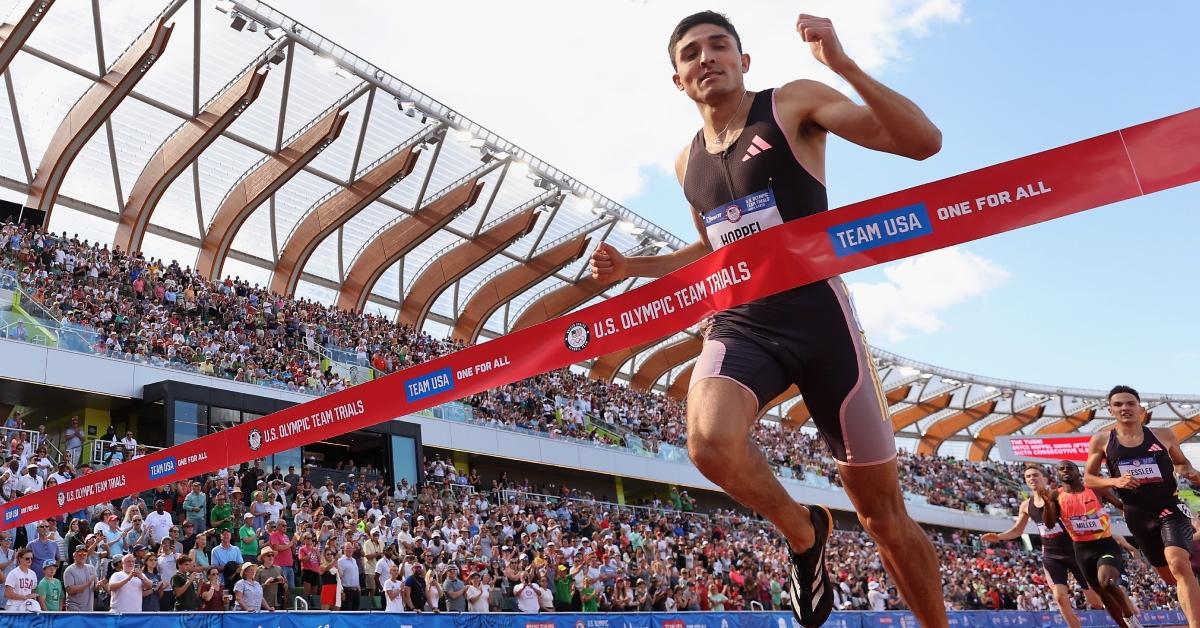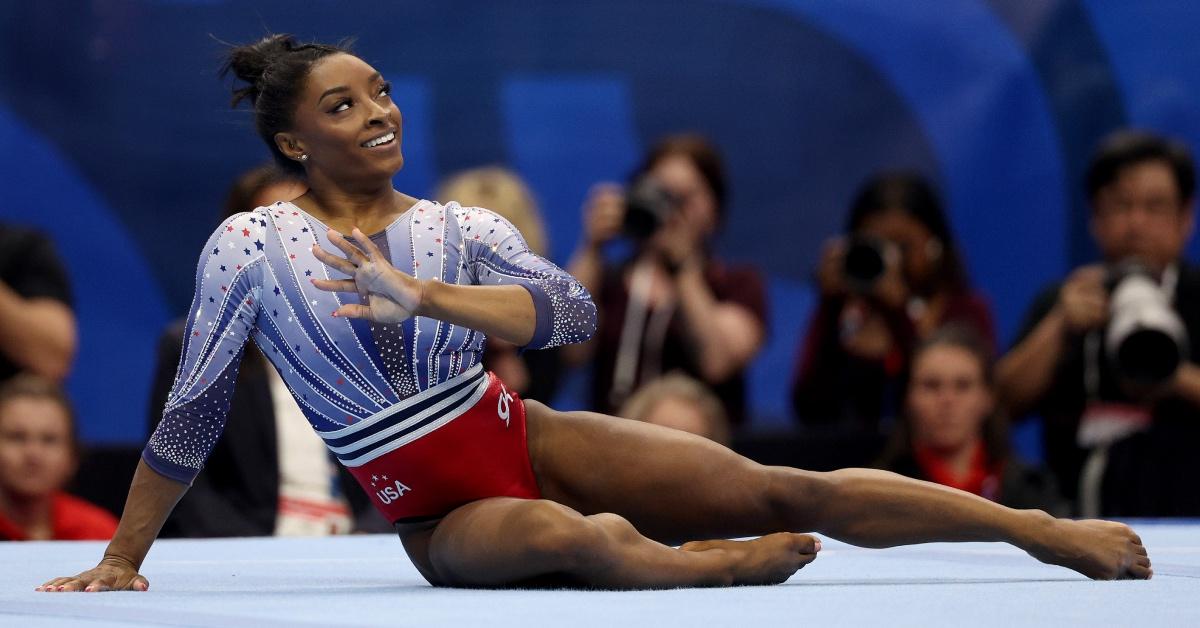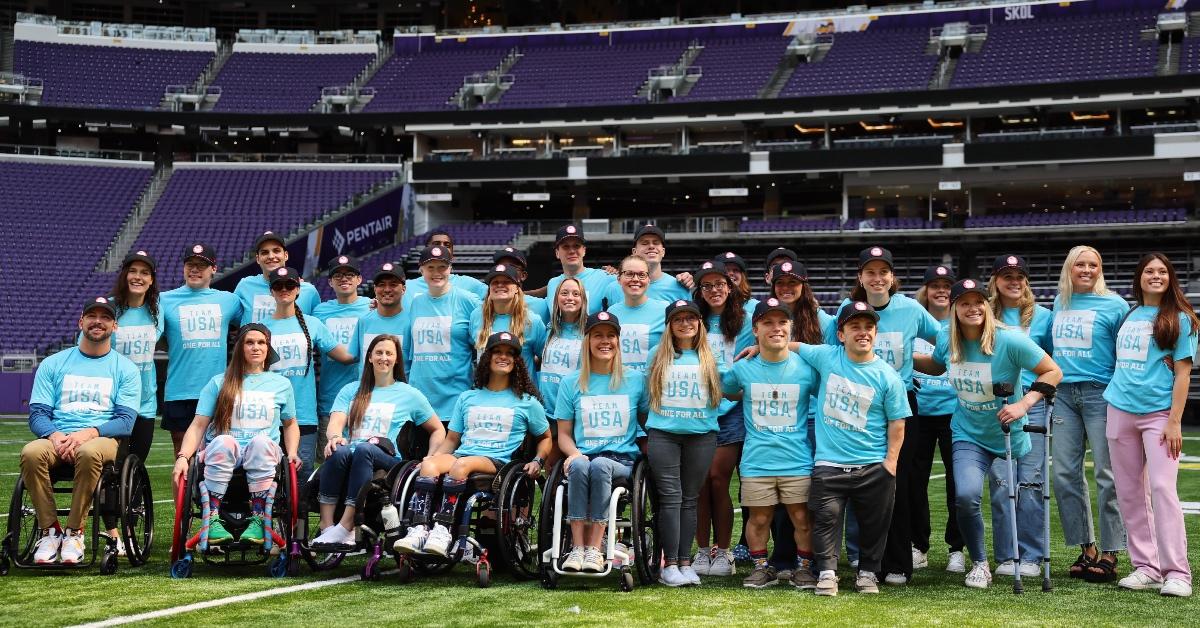Olympic Athletes Can Get Paid for Their Remarkable Athleticism, but It's Usually Not Much
In April 2024, World Athletics made history by becoming the first international federation to offer prize money at the Olympic Games.
Updated July 1 2024, 12:13 p.m. ET

If there's one thing that's known the world over, it's how long and hard Olympic athletes train for years to reach a spot in the coveted competition. These remarkable beings push their bodies to be bigger, better, and stronger to represent their countries as best they can. But what do they get in return for all their hard work?
Being an athlete is no easy job considering all the time and effort they have to put into getting into tip-top shape. And because that takes up so much of their time, fans wonder if athletes have time for much else. Being an Olympian is definitely a job, but do the athletes get paid? Here's what we know.

Do Olympic athletes get paid?
According to a 2018 article published by CNBC, U.S. Olympic athletes don't make much money. They don't get paid simply for being considered some of the best athletes in the country, but they can get performance-based stipends that cover things like rent and food. Some have said that they have part-time jobs, and, like a lot of other public figures, some of them get endorsement deals or sponsorships that keep them afloat.
Because of how demanding Olympic training schedules can be, many athletes don't have time to dedicate to other jobs. This leaves them with few options when it comes to making ends meet and paying bills. On top of that, they end up having to pay for a lot of their own travel expenses, which could easily become another burden on them financially, considering the cost of plane tickets and of transporting all of their gear.

Do winning Olympic athletes get paid?
Medal-winning athletes can get paid more depending on the country they're from. Some countries like the U.S. offer what is being called a "medal bonus" which is an extra amount of money for placing in the top three. According to a 2016 article from the United States Olympic and Paralympic Committee (USOPC) website, U.S. Olympic athletes would get paid $37,500 for each gold medal, $22,500 for silver, and $15,000 for bronze, starting in 2017.
In April 2024, World Athletics made history by becoming the first international federation to offer prize money at the Olympic Games. The awards, drawn from a $2.4 million fund generated by the International Olympic Committee (IOC), will be distributed starting from the 2024 Summer Olympic Games in Paris. Gold medalists in each of the 48 athletics events at the Games will receive $50,000 each.
While World Athletics currently only awards prize money to gold medal winners, there are plans to extend this to silver and bronze medalists starting from the LA 2028 Olympic Games.
Athletes have spoken out about how they struggle financially.
In 2018, U.S. figure skater Adam Rippon tweeted that around 2013, he would steal apples from his gym because he didn't have money for groceries. He's been winning Olympic gold medals since the early 2000s.
At the 2021 games, Olympic track and field sprinter Allyson Felix, her sponsor Athleta, and the Women's Sports Foundation helped other Olympic moms pay for childcare during the games. Nine athletes, including six going to the Tokyo Games, received money from the Power of She Fund childcare grant totaling $200,000.
"We strive to remove barriers for mom-athletes and celebrate who they are holistically," Athleta shared in a now-deleted Instagram post alongside a picture of Allyson and her daughter.

How much do Paralympians get paid?
Olympians don't get paid much, but Paralympians used to get paid even less. In previous years, gold medal Paralympic winners would only be earning $7,500 per medal, per the USOPC website. They would earn $5,250 for each silver, and $3,750 for each bronze medal. But now, things are changing.
Starting with the 2020 Olympics, it was announced that Paralympians will be paid the same amount as Olympians for each medal they earn. According to the International Paralympic Committee, that reflects a whopping increase in pay of up to 400 percent across the board.